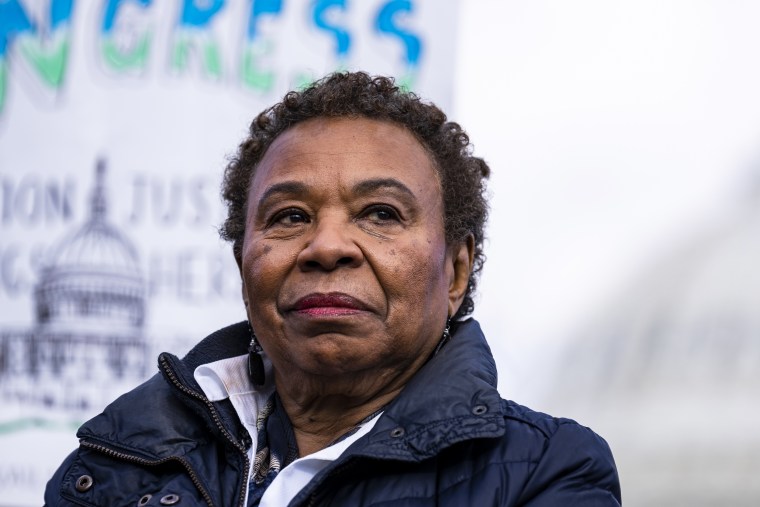Democratic Rep. Barbara Lee’s expected entrance into the California Senate race could shake up the contest thanks to a key factor: geography.
Lee, who is expected to launch her Senate campaign by the end of this month, would be the first candidate representing Northern California to jump into the race. The race to replace retiring Democratic Sen. Dianne Feinstein already includes Democratic Reps. Katie Porter, who represents Orange County, and Adam Schiff, whose district includes Hollywood.
Lee is at a financial disadvantage compared to those two fundraising powerhouses, but her base in Northern California could boost her candidacy, especially given the state's recent history. Four of the state’s last five senators, including Feinstein, have hailed from the northern part of the state.
Bill Carrick, Feinstein’s longtime campaign consultant, told NBC News that voters in Northern California are more likely to support their own candidates than voters in the southern part of the state, in part because of the sheer number of politicians in the populous Los Angeles area.
“Northern California is basically more political than Southern California,” Carrick said, later adding, “I think there’s just more general political interest and energy in Northern California.”
But Northern California politicians still have to work to win over voters in the southern part of the state. Carrick noted Lee has some roots in the San Fernando Valley, where she attended high school, and the area is a crucial swing vote in primaries.
But Lee is still at a significant financial disadvantage. As of Dec. 31, her House campaign had just $52,000 in its account, which she could transfer to a Senate campaign. Porter’s House campaign had $7.4 million on hand while Schiff’s had a whopping $20.9 million in its account.
"Money will be a big factor — this is such a gargantuan state with unbelievable cost to communicate with the voters,” Carrick said.
But, he later added, “it’s not the end all be all.”
Lee may not be the last candidate to jump into the race, where candidates from all parties compete on the same primary ballot and the top two vote-getters advance to the November election.
One other potential candidate to watch is Democratic Rep. Ro Khanna, who recently told CBS News that he has been encouraged to run but that Lee’s decision would “weigh heavily” on his own consideration. Khanna, who is also a strong fundraiser, could further shake up the geographic makeup of the race as the congressman representing Silicon Valley.
”I suspect that we’re going to have more people run,” Carrick said. “In the last few decades we’ve elected senators that stayed a long time. These seats don’t open up too much.”

